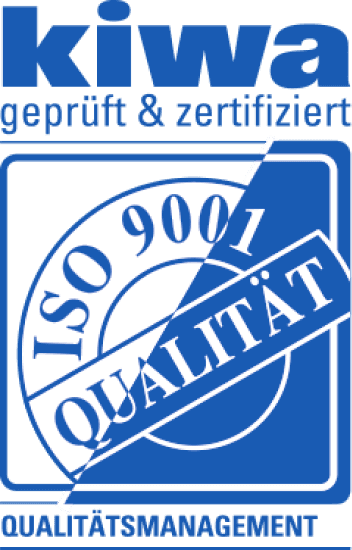INTERVIEW BOSCH
Book Demo
November 15, 2021
"3,000 Bosch employees have completed mental training"
You have firmly integrated the topic of "mental health" into your training programs for managers and employees at Bosch. How did that come about?
Petra Martin: About ten years ago, I was tasked with developing a leadership program to better equip our leaders to guide Bosch into the future. It was clear we were heading for deeper transformation, and that this change would primarily flow through our leaders. I had to consider: What more can we achieve with good leadership? Beyond the theoretical content, I felt we needed a “linking pin” — something experiential, something holistic. Then I came across an article in Manager Seminare explaining how ...
What was the next step?
In 2012, we started with a hand-picked group of 15 top executives to train mindfulness, with the intention of scaling it up later. They were initially surprised but engaged well and later gave feedback like: "Wow, this was really something different!"
We later evaluated the program qualitatively and conducted many surveys. We consistently heard that it was the most interesting topic in the entire program. So far, about 2,500 leaders have completed the training. Mindfulness is fully established here. Not every leader practices it, but all have encountered it and developed an understanding of it.
You now also offer mindfulness training to other employees?
Through mindful leadership, we offer a powerful entry into the topic. The training isn’t about escaping stress, but about moving towards greater focus and calm. That’s why it fit perfectly into our leadership trainings. Eventually, though, the question came from employees: Why is this only for leaders? We want it too. So it was clear that we had to expand the program.
And now you're doing that with the Mindance app?
Exactly. We developed a new program in 2019 and piloted it with a small group. Since then, about 1,000 people have participated. During the COVID period, the sessions were especially helpful — we received that feedback again and again. The shared meditation and open exchange helped many through the crisis. We’re about to start the next round, and I expect another 200 participants.
Mental training needs to be done over time to show results. How do you keep leaders and employees engaged?
We created a program called Mindfriends — for anyone. It runs over ten weeks and is linked with the “working out loud” method. Each participant joins a “body group” — a matched peer group, often working in the same location. We give them a workbook (which we wrote ourselves) and the Mindance app.
We have a great "completion rate" of over 80%. During COVID, it was even higher, as people craved more "me time" and mental resilience — or whatever you want to call it. Many realize: it feels good to care for my inner world and calm the chaos in my head. Life has become faster and more demanding. It’s valuable to have tools you can actively use to restore mental balance.
How do you prevent mental training from feeling like just another task in an already overloaded workday?
That’s a story everyone tells themselves. It’s about making it clear: You’re doing this voluntarily, for yourself! It’s not about optimization. Of course, you could use it for that, but that’s not Bosch’s intent. Everyone needs to find their own reason.
For example, years ago I had serious back problems. A therapist told me I needed to cut something out — it was too much. But for me, cutting back wasn’t an option. Instead, I thought: “You’ll add something.” So I chose meditation and yoga. That decision was worth so much to me that the small time investment for the exercises didn’t matter in the end.
You believe that choosing to add something can actually unlock new resources?
I wouldn’t generalize, but I think many people struggle because they believe they have no time. I know managers here who are completely tied up in operations, unable to structure their own schedules — almost driven by the work.
And yet they do extra things — like giving talks — even though technically they don’t have time. But they’ve realized: the energy I get from this helps me so much in my daily work. Everyone must decide for themselves: Am I doing this willingly, and do I trust that each minute I invest is worth much more?
Do companies now understand that mental training is a powerful form of self-care?
Yes, managers now understand very well that they need to exercise and stay physically active to remain healthy and effective. And the realization is growing that mental health is just as essential.
For example, we spend hours daily in online meetings. During that time, we could check emails, browse the web — the temptation is high. But the real task is choosing not to give in, just because you’re bored. That takes awareness — the ability to observe your mind and manage impulsive behaviors. Only then can you make conscious decisions: Maybe I do need to multitask, or I need to step out of this meeting.
If I want to stay capable, I need some form of mental hygiene. How do I bring calm to my mind? How do I ensure I remain focused and open at the same time?
How important is mindfulness and mental training for team collaboration?
Bosch is a tech company. We depend on innovation and face major societal challenges — like climate change. We need new technologies. But if everyone’s just jumping from website to website every two minutes, we won’t get there. Mental training helps me refocus and go deeper. That’s crucial.
We often say that the future of work lies in collaboration — radical collaboration. So we also need new tools: How well can I express things that bother me? What are my triggers, when do I stop listening or explode? Real collaboration requires mindfulness.
In our 10-week training program, we work through these topics step by step, supported by meditation. Mindance provides tailored meditations for every topic and week. You’re guided deeper and deeper into the journey. That’s something special.
Have you evaluated the impact of mindful leadership on both the leaders and other stakeholders at Bosch?
Before and after launching our leadership program, we conducted extensive surveys. We looked at how leaders changed. The results were both expected and a little sobering. Leaders rated their own learning and behavior change very highly. Their supervisors rated it as moderate. Employees felt the least change.
At first, I was disappointed — we’d seen such powerful moments in the seminars. But then I realized: They’re not different people. They just think differently now. And the kind of leadership we aim for — one that holds space instead of taking over — isn’t something every employee likes. Sometimes, not stepping in and letting others own responsibility is the challenge. That’s not always welcome.
Are those leaders also happier and healthier?
Right now, we’re seeing crisis upon crisis — COVID, the auto industry, now the supplier crisis. Some managers in operations are already in deep burnout territory. Some have even told me: “Petra, if I hadn’t learned mindfulness and meditation, I might not be alive.” That’s a direct quote.
Mindfulness gives them a way to consciously step out of stress — even if it’s just ten minutes of quiet. That small break creates distance.
We also did interviews with leaders as part of a master’s thesis. One key finding: they’re more aware of their overload. They now notice: I need a break — much earlier.
Are they happier and healthier? It really seems so. They appear more satisfied, more self-directed, and more aware of what their body and mind need.
Do you think these leaders are better role models? What’s your impression?
What really stands out to me is how communication has changed — especially here in Salzgitter. I know the tough tone in production. It used to be that the foreman shouted and things got done.
Now, some of those same foremen are reflecting: How does my tone come across? Where is the other person at right now? They’re consciously shifting perspective. I’ve seen real moments of empathy and persuasion. It’s impressive.
Mindfulness might still be a “knowledge” topic, not so much part of production, but I’ve noticed calmer reactions even there. People under pressure stay composed. They can swallow something in a meeting without lashing out — or choose to escalate, intentionally and clearly.
Is mindfulness the future of leadership?
I believe people have become more aware of just how important people are. We’re a tech company full of process-lovers — but what matters for the future can only be achieved through people. Not through structures or charts, but by working with people.
Second, leadership is about relationships. You can only lead if your team chooses to follow — and that only happens if you build a relationship. And that means being genuinely interested in them.
We did two major employee surveys at Bosch, reaching 400,000 people. The managers who went through our leadership program got the highest approval ratings.
They’re simply more reflective. Many probably kept up their mindfulness practice. You might say they’re more mature leaders. And their behavior is exactly what we want to see in our leaders.





